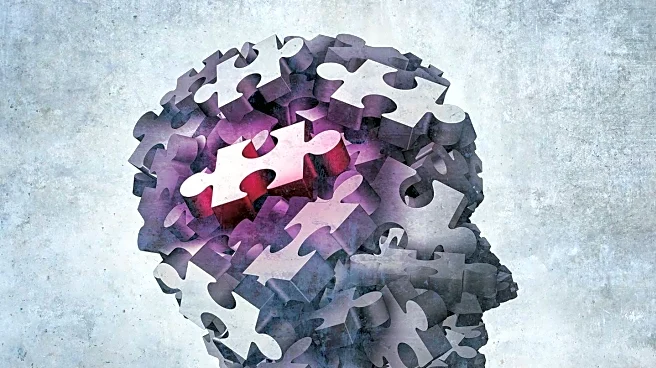What is the story about?
What's Happening?
A clinical trial investigated the effects of combining repetitive transcranial magnetic stimulation (rTMS) with social cognitive remediation group therapy (SCRT) to improve hand gesture performance in individuals with schizophrenia. The trial involved 10 sessions of rTMS over the right inferior parietal lobe and 16 sessions of SCRT. While the combination did not improve overall hand gesture performance, it showed improvements in pantomime meaningless gestures and personal and social functioning during follow-up periods. The study highlights the potential benefits of group settings in enhancing social communication and functional outcomes for schizophrenia patients.
Why It's Important?
The trial's findings are significant for the treatment of schizophrenia, a condition often associated with impairments in hand gesture performance and poor community functioning. Enhancing pantomime gestures can support better social communication, which is crucial for improving the quality of life for individuals with schizophrenia. The study suggests that group therapy settings may have strong benefits for social-cognitive and emotional regulation, indirectly supporting patients' social functioning. These insights could inform future therapeutic approaches and interventions aimed at improving social skills and community integration for schizophrenia patients.
What's Next?
The study recommends replicating the trial in larger multicenter settings to validate the findings. It suggests optimizing SCRT content and rTMS protocols to enhance effects on social-cognitive skills. Future research could explore the combination of rTMS with virtual reality to simulate complex real-life scenarios, providing a controlled and immersive environment for therapy. Additionally, studies should consider outcomes like employment and social engagement to better connect neural and behavioral changes with real-world functioning.
Beyond the Headlines
The trial underscores the importance of addressing gesture deficits in schizophrenia, which are linked to broader praxis abilities and social functioning. The findings suggest that enhancing pantomime gestures may have meaningful clinical implications, supporting better nonverbal communication and functional outcomes. The study also highlights the potential of neuromodulation techniques in improving cognitive flexibility and motor planning, offering new avenues for therapeutic interventions in schizophrenia.
















